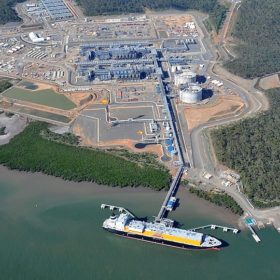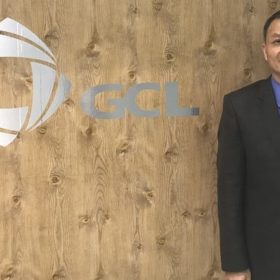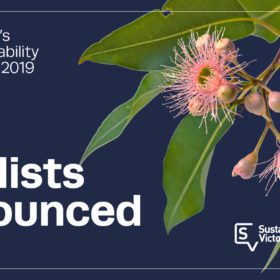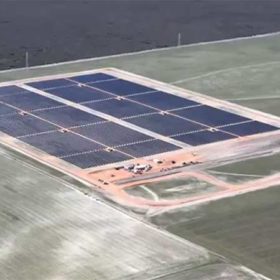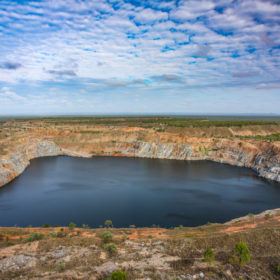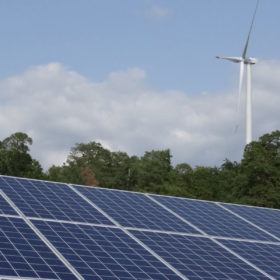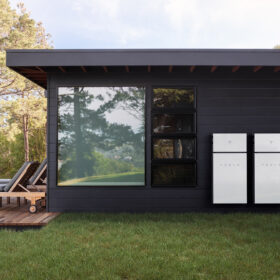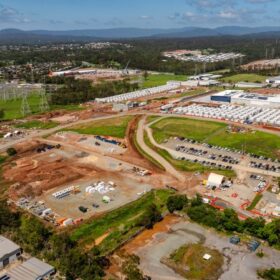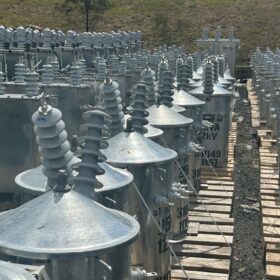UNSW to host important series of lectures on the economic and climatic transition
The University of New South Wales (UNSW) Sydney’s Practical Justice Initiative (PJI) will host a Climate Transition Lecture on the impact of Australia’s fossil fuel exports on the climate on September 17. Experts will discuss how possible the phasing out of fossil fuel exports is and how it can be done.
Eric Luo: China will see just 20-25 GW of solar per year through 2025
The GCL System chief executive made comments that fly in the face of an expected solar gold rush in China that analysts predict will start this month. Though rising overseas demand will address overcapacity fears, according to Luo, the soundbite is sure to chill PV boardrooms across the world’s biggest solar market.
Finalists for Victorian Premier’s Sustainability Awards announced
A solar energy capital in regional Victoria, a community power hub and a renewable energy auction, these are just some of the innovative and sustainable solutions being celebrated at this year’s Victorian Premier’s Sustainability Awards.
RES battery prevented complete blackout in the UK
On August 9, a thunderstorm caused 1.5 GW of generation capacity to go offline within seconds in the U.K. The incident caused millions of households to temporarily lose power but the situation could have been considerably worse if not for the country’s battery storage reserves.
Long read PT 2: PV in need of a new chapter for wind
In part two of this feature on wind resilience in the PV industry, the lack of structural codes comes into focus. Weather events, and wind above all, are the most common causes of failure for PV plants. In the United States, the first steps have been taken to catch up with other industries and a dedicated chapter for PV is set to be included in the next update of the American Society of Civil Engineers code. In Europe, no such plans are in place.
Long read PT 1: Tracking in the wind
Extreme wind events are the biggest cause of failure and insurance claims for any PV plant, according to Thorsten Kray, Head of the Building Aerodynamics Department at Institut für Industrieaerodynamik GmbH, Aachen. For structural reasons, single-axis trackers are more prone to the issues than fixed-tilt structures. In this two-part series, pv magazine will examine the ways that wind impacts trackers and what EPCs and investors need to look out for, in addition to outlining a range of approaches from big tracker suppliers that were designed to mitigate wind-related damage.
Juwi lands Greenough River solar farm expansion deal
Germany’s Juwi will take over the stalled Greenough River solar farm expansion in the wake of RCR Tomlinson’s collapse. The second stage involves construction of an additional 30 MW of solar PV at the site.
Kidston transmission line funding paves the way for more solar and wind
The Queensland government has pledged to support Genex’s project at Kidston with up to $132 million. The funding will be used to build a single circuit transmission line and connect a massive pumped hydro project with the main grid, unlocking additional stages for the clean energy hub, including up to 270 MW of additional solar and up to 150 MW of wind.
It’s official: Large-scale Renewable Energy Target achieved more than a year early
The Clean Energy Regulator has confirmed it has approved enough capacity to meet the Large-scale Renewable Energy Target (LRET). While this is a great achievement for the renewables industry, the question remains what comes beyond 2020. Although analysts expect a slow down, ANU researchers find the record installation rates will see Australia surpass the scrapped target of 41,000 GWh of renewable energy generation around the end of 2020.
Canadian researchers have done the math on optimizing PV output
Mathematicians at Canada’s University of Waterloo who turned their attention to solar power have developed an algorithm they say offers better control over PV plant output. The researchers estimate the algorithm could improve the output of a 100 MW power plant by almost a million kilowatt-hours per year.
